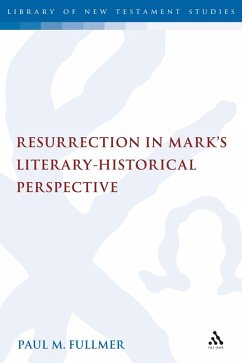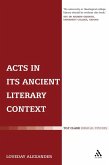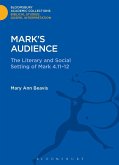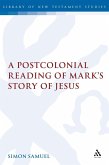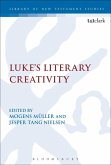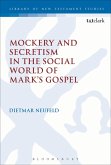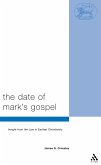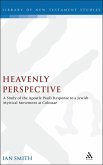Through a careful reading of several ancient texts such as Chariton's Callirhoë, Fullmer identifies an ancient storytelling convention with roots in the Homeric tradition in which narratives of death and revival accentuate significant points in a story. In Mark's Gospel, resurrection narratives accentuate the power of Jesus' ministry (Mark 5:21-43) as well as the ironic disloyalty of Jesus' disciples as their failure is first assured (Mark 9:14-29) and later realized (Mark 16:1-18).
The reader of this study will come to appreciate how the irony of the Gospel - a literary feature that is prominent in novelistic literature - is furthered by a novelistic application of the resurrection theme. These observations affirm an identification of the genre of the Gospel as novelistic literature.
The reader of this study will come to appreciate how the irony of the Gospel - a literary feature that is prominent in novelistic literature - is furthered by a novelistic application of the resurrection theme. These observations affirm an identification of the genre of the Gospel as novelistic literature.
The study also examines themes of death and revival in texts of the Hebrew Bible, revealing a recurrent constellation of motifs. In these texts, Fullmer convincingly traces a Prophetic resurrection topos with characteristics that are compared to an Epic resurrection topos identified in the Homeric tradition. He then demonstrates how the two topoi merge in later, novelistic texts of Hellenistic Judaism such as the Gospel of Mark, witnessing to a widespread amalgamation of cultures that characterizes the Hellenistic period.
This study supports a growing appreciation of the ethnic hybridity of the context that produced Mark's Gospel, contributing to the work of scholars who question an often overdrawn dichotomy between Jewish and Greek culture in the Hellenistic period. Moreover, the significant influence of epic, non-biblical traditions upon the Gospel becomes manifest without an assertion of direct dependence upon Homeric epic. Overall, the study provides a model for the examination of specific themes of the Gospel in light of related ancient literature which enhances modern understanding and appreciation of Mark's story.
Es gelten unsere Allgemeinen Geschäftsbedingungen: www.buecher.de/agb
Impressum
www.buecher.de ist ein Internetauftritt der buecher.de internetstores GmbH
Geschäftsführung: Monica Sawhney | Roland Kölbl | Günter Hilger
Sitz der Gesellschaft: Batheyer Straße 115 - 117, 58099 Hagen
Postanschrift: Bürgermeister-Wegele-Str. 12, 86167 Augsburg
Amtsgericht Hagen HRB 13257
Steuernummer: 321/5800/1497
USt-IdNr: DE450055826
Bitte wählen Sie Ihr Anliegen aus.
Rechnungen
Retourenschein anfordern
Bestellstatus
Storno

